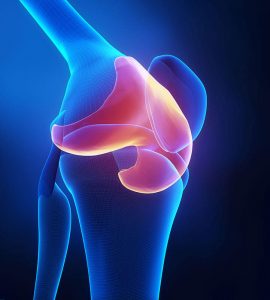
Regain Mobility in Your Shoulder
Frozen shoulder, also known as adhesive capsulitis, is a condition that causes stiffness, pain, and limited movement in the shoulder joint. It often develops gradually and can significantly impact your ability to perform everyday tasks such as lifting your arm, dressing, or even sleeping comfortably.
At Quantum Orthopaedics, we specialise in diagnosing and treating frozen shoulder using evidence-based, personalised care. Whether you’re in the early stages of discomfort or struggling with long-term stiffness, our team is here to help you restore your range of motion and quality of life.
What is Frozen Shoulder?
Frozen shoulder occurs when the capsule of connective tissue surrounding the shoulder joint becomes inflamed, thickened, and tight. Over time, this restricts movement and causes persistent pain.
The condition typically develops in three phases:
- Freezing Phase: Pain gradually worsens, and shoulder motion becomes increasingly limited (lasts 6 weeks to 9 months).
- Frozen Phase: Stiffness increases, but pain may lessen slightly (lasts 4 to 6 months).
Thawing Phase: Gradual improvement in range of motion (can take 6 months to 2 years).
Common Symptoms of Frozen Shoulder
- Persistent, dull or aching shoulder pain
- Stiffness in the shoulder joint
- Difficulty reaching behind your back or above your head
- Limited shoulder movement that worsens over time
- Pain at night or during rest
Frozen shoulder often affects one shoulder, but in some cases, it can develop in both.
How is Frozen Shoulder Diagnosed?
Diagnosis is based on your symptoms, medical history, and a physical examination. Your specialist will assess your range of motion and rule out other possible causes of shoulder stiffness. Imaging tests such as X-rays, MRI, or ultrasound may be used to confirm the diagnosis or identify other underlying issues.
For more information on frozen shoulder,
please contact us for a detailed evaluation at 8028 4572 today.
Frozen Shoulder Treatment Options
The good news is that frozen shoulder often improves with time, especially when guided by the right treatment. At Quantum Orthopaedics, we offer a range of treatment options tailored to the phase and severity of your condition.
Non-Surgical Treatments
Physiotherapy
The cornerstone of treatment. Guided exercises help restore flexibility and mobility. Techniques may include:
- Passive stretching
- Strengthening exercises
- Manual therapy
A consistent rehab program is essential and often continues for several months.
Medications
Pain relief and anti-inflammatory medications (NSAIDs) can help manage discomfort, especially in the freezing phase.
Steroid Injections
A corticosteroid injection into the shoulder joint can reduce inflammation and pain, particularly helpful in the early stages.
Hydrodilatation (Joint Distension)
A minimally invasive procedure where a sterile fluid is injected into the joint capsule to gently stretch it and improve movement. Often combined with guided physiotherapy.
Frozen Shoulder Surgery in Singapore
If symptoms do not improve after 6–12 months of conservative treatment, surgery may be considered.
Shoulder Arthroscopy (Capsular Release)
A minimally invasive procedure where tight portions of the joint capsule are released using small incisions. This allows for immediate improvement in range of motion, followed by post-operative rehabilitation.
Manipulation Under Anaesthesia (MUA)
In some cases, the orthopaedic surgeon may gently move the shoulder while you’re under anaesthesia to break up adhesions and scar tissue. This is usually followed by aggressive physiotherapy.
If you’re struggling with persistent shoulder stiffness or pain, don’t wait.
We provide effective frozen shoulder treatment in Singapore, to help you regain movement and improve your quality of life.
What is the Recovery Timeline for Frozen Shoulder?
Recovery varies depending on the severity and treatment approach:
- With non-surgical treatment, most patients begin to see improvement within 6 to 12 weeks, with full recovery taking several months.
- Following arthroscopic surgery, range of motion typically improves rapidly, but full strength and flexibility may take 3 to 6 months to return.
- Early diagnosis and active participation in physiotherapy significantly improve outcomes.
When Should You See a Frozen Shoulder Specialist?
You should consult a specialist if:
- Shoulder stiffness and pain have lasted more than a few weeks
- Your shoulder movement is significantly limited
- Pain disrupts your sleep or daily activities
- You’re unable to perform basic tasks like dressing, reaching, or lifting
- Symptoms are worsening despite rest or self-care
Early intervention can prevent long-term disability and reduce the need for surgery.
Frequently Asked Questions (FAQs)
Is frozen shoulder permanent?
No. Frozen shoulder often improves over time, especially with proper treatment. However, without intervention, the condition can persist for months or even years.
Can frozen shoulder come back after treatment?
It is uncommon for frozen shoulder to recur in the same shoulder, but it can occasionally affect the other shoulder, especially in people with underlying conditions like diabetes.
Is surgery always required for frozen shoulder?
No. Most cases improve with non-surgical treatments such as physiotherapy and steroid injections. Surgery is only considered when conservative methods fail.
How do I prevent frozen shoulder?
Keeping your shoulder moving after injury or surgery is key. If you’ve had shoulder immobility, engage in gentle range-of-motion exercises and follow your doctor’s advice closely.
Can I exercise with frozen shoulder?
Yes, but under the guidance of a physiotherapist or specialist. Overdoing it can worsen inflammation, while targeted stretching and strengthening exercises are beneficial.




